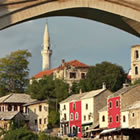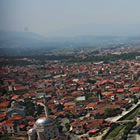Since its creation in 1999 ESI as an institution and ESI analysts have been struggling with the question how to make intervention work best and how to avoid their dangers and pitfalls. Here is just a short overview of the relevant work by ESI and of the people behind it.
 |
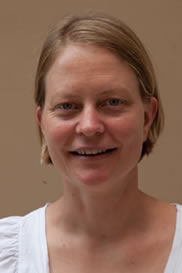 |
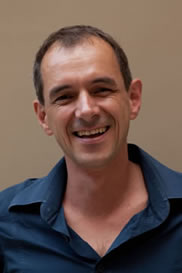 |
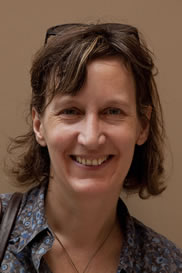 |
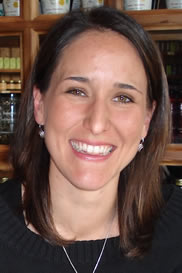 |
||||
|
Marcus Cox, a founding member and founding senior editor of ESI since 1999. Marcus had worked in OHR, drafting the early property laws that were imposed to enable property repossession. He returned to work in Sarajevo to head an ambitious Bosnian governance assessment project that ESI carried out funded by DFID in 2002. He has also worked as a development consultant in Africa, Asia and the Pacific and as a speech writer for the general secretary of the African Development Bank based in Tunis. |
Minna Jarvenpaa, a founding member of ESI. Minna worked as ESI senior analyst in Belgrade, Brussels, Skopje and London. She also worked in OHR in Bosnia, as strategy advisor for the SRSG in Kosovo, as international administrator in Mitrovica, for the Stabilisation Unit of the UK government in London, and as Head of Analysis and Planning in the UNAMA mission in Kabul. |
Kristof Bender, deputy chairman of ESI, worked for ESI based in Nis, Podgorica, Skopje and Vienna. He recently wrote a chapter on the lessons from international intervention in Macedonia in 2001 for a book that comes out in January 2012. In Macedonia a much too little noticed very successful effort was made to both prevent a war from spilling out of control and to build a peace based on interethnic compromise. |
Alexandra Stiglmayer is a senior analyst and founding member of ESI. A journalist by training, she covered the wars in former Yugoslavia. During that time, she wrote a book about war-time rape of women in Bosnia. She also worked for the OHR as the head of the press office, chief spokesperson and media expert. |
Verena Knaus was one of the leading researchers in the field for the Lessons Learned and Analysis Unit in Kosovo, a joint project of ESI and the EU Pillar of UNMIK. She has also been involved in ESI research in Serbia, Turkey, and the Caucasus. Throughout these years Verena worked closely with emerging think tanks in Kosovo, Macedonia and Albania as part of the ESI capacity building programme. |
||||
- Kristof Gosztonyi is an ESI analyst, has also worked for OHR in Bosnia, for UNHCR in Sri Lanka, and on a number of projects in Afghanistan.
- David Stewart Howitt has been actively involved in transition and emerging Europe for over 15 years, including working for organisations as diverse as the UK Foreign and Commonwealth Office and the OHR in Bosnia.
- Felix Martin worked for the World Bank in Bosnia, Serbia, and Kosovo as well as an ESI analyst for Bosnia.
- Kristina Hemon has worked in the Balkans on rule of law and justice issues for the OHR, ESI, International Crisis Group, the Council of Europe, and the UK's Post Conflict Reconstruction Unit.
- Milan Nic has been a dvisor to the High Representative Miroslav Lajcák in Bosnia, worked as an ESI analyst and is now the Balkan advisor for the Slovak Foreign Minister.
- Nicholas Wood has covered South Eastern Europe as a journalist since 1995. He also worked for ESI as a Balkans analyst.
- Paul Hockenos is an author who has written about South Eastern Europe since 1989. He has also worked for ESI as Balkans analyst.
- Verena Ringler has covered the Balkans as a journalist since 1996 and worked as an ESI analyst on European Enlargement.
- Dominic Zaum worked with ESI's Lessons Learned and Analysis Unit in Kosovo. As an academic he has published extensible on the experiences and lessons from interventions in the Balkans, and edits a new book with Mats Berdal.

